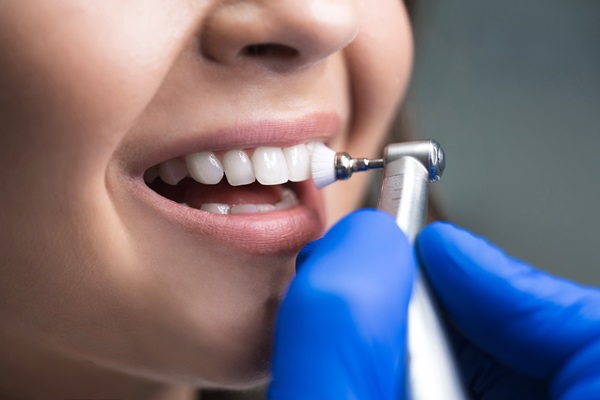What to Ask Your Dentist About a Dental Cleaning

A dental cleaning is the perfect opportunity to catch up with your dentist. Yes really, catch up. Your average dentist loves it when their patients have healthy teeth that need little more than a light scrub. This is why preventative measures like routine checkups are so important.
Patients with healthy teeth can spend the bulk of their dental visit receiving gems of wisdom from their dentist. Here are some questions to ask your dentist about dental cleaning and oral health.
The need for professional dental cleaning
It is always a good idea to start at the beginning: Why is professional teeth cleaning necessary if the patient takes excellent care of their teeth? Dentists answer this question by listing the different benefits of regular dental visits:
- Routine dental checks allow a dentist to monitor the health of their patient’s teeth, gums, and oral cavity
- Monitoring also includes screening for oral cancer at no extra cost to the patient
- Dentists also get to catch and correct small problems before they develop into larger, more expensive problems
- Deep cleaning of the teeth ensures that the patient is free from plaque buildup and tartar, which can cause gum disease
In a nutshell, dental cleaning is a preventative measure that pretty much ensures a lifetime of healthy teeth and gums. This translates into cost savings since the patient will have little need for restorative dentistry. The patient can now move on to other questions.
Does dental cleaning hurt?
Different individuals will have different experiences in the dentist’s chair. The person getting their teeth cleaned after a long while may experience some tooth sensitivity from scaling (plaque removal) and polishing. Also, people who rarely floss may experience a little bleeding that goes away after a short while.
There are ways to ensure a smooth process. For starters, the dentist may ask their patient to take an over-the-counter painkiller before and after the procedure. The dentist will also use a topical anesthetic to numb the patient’s teeth and gums. They will advise their patient to eat soft foods for one or two days after the deep clean.
How healthy is the patient’s mouth?
The dentist will always perform an in-depth exam as preparation for deep cleaning their patient’s teeth. They will share their findings with the patient. A breakdown of the patient’s oral health should include the state of the teeth and gums. The dentist should also tell their patient if they have abnormalities in the tongue, inner cheeks, oral cavity, throat, or neck.
Lastly, the dentist will point out problem areas that need improvement. They will also offer solutions to address these problem areas. Solutions may range from a change in oral habits to corrective dental procedures.
Find out how to keep your dental bills to a minimum
With regular dental cleaning, sharp dentist’s tools may never come near your mouth again. Sounds good, right? All it takes is good oral habits that include regular visits with our very pleasant dentist. Make teeth cleaning a regular thing and limit your dentist visits to a chat and a few minutes in the dentist’s chair.
Request an appointment here: https://www.inspiredental.me or call Inspire Dental of Maine at (207) 221-5578 for an appointment in our Portland office.
Check out what others are saying about our dental services on Yelp: Dental Cleaning in Portland, ME.
Related Posts
A dental deep cleaning is often necessary when individuals neglect their oral cavity, thus resulting in poor health. Once the point has been reached where a dental deep cleaning is necessary, individuals will need to take extra care of their gums afterward. Doing so will ensure that the results of the cleaning last.A dental deep…
It is common for people to be nervous about their upcoming dental exam with a general dentist. Rest easy because there is no reason to be anxious about checkups like these. However, seeing a dentist twice a year is very important to your oral and overall health and safety.Dentists do much more than just look…
General dentists are responsible for restoring and replacing teeth that are lost due to decay or accidents. Unfortunately, the teeth are prone to both, making it so that treatment is necessary. A common treatment used in general dentistry for tooth restoration and replacement is a dental bridge. Having a dental bridge placed can make life…
Experiencing a need for a denture repair? Unfortunately, dentures are extremely prone to accidents, which can result in damages such as cracks or chips. When this happens, a lot of wearers wonder what they should do next. The answer is simple, visit a dentist's office.Denture repair should always be done by a dentist, but why?…
